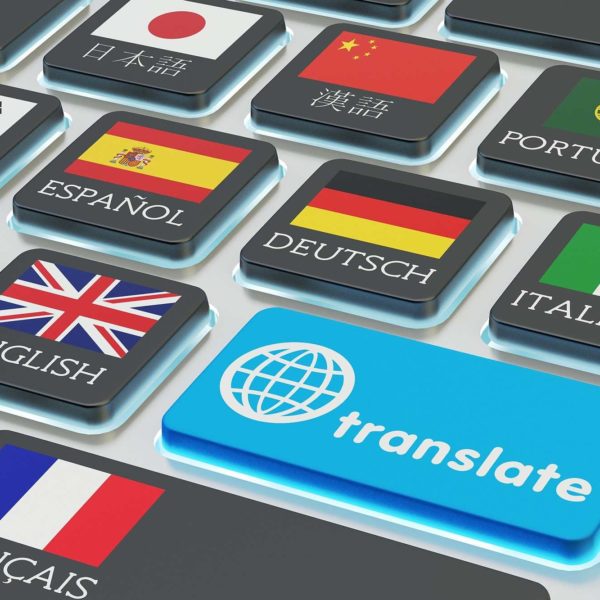5 Things You Need to Know About Interpreting Services
Interpreting services, sometimes also called interpretation services, are services provided by bilingual professionals – interpreters – in facilitation of an oral communication between two or more individuals speaking different languages.
The reasons one might need an interpreter are numerous. In a diverse country, such as the United States, you are sure to witness an interpreter working at one point or another. The most typical settings for professional interpreting are the following:
- Business – have a foreign partner, customers abroad, or employees whose primary language is not English? By using professional interpreting you can make sure that your message gets across languages and cultures and your brand carries through as well.
- Community – interpreting services are provided on a large scale in health care, immigration, social services, and similar settings.
- Legal – our court and law enforcement systems are traditionally also strong users of interpreting, often provided by licensed professionals.
- Politics & Diplomacy – think the United Nations, the State Department and other diplomatic circles and their constant need for highly skilled interpreters to help keep foreign relations active.
- Hire a Professional Interpreter
One of the greatest pitfalls for first-time users of interpreting services is the fact that bilingual people seem to be everywhere. It is easy to think that if someone speaks Spanish on a native level, they might be able to interpret at your business meeting. Typically, this is far from the truth.
Being bilingual is only one of the skills an interpreter needs to be successful. Even with years of “interpreting” for family members or colleagues at work, it is hard to imagine getting the same peace of mind you would get from using a professional with years of training and experience.
Look for information about the person’s credentials, experience and background. If hiring through an agency, make sure you understand how they find, train, and monitor their interpreters.
- Understand Your Needs
There are several different types of interpreting and typically they require different skills. For example, an interpreter working at a business meeting will be working in a consecutive interpreting mode, when he or she follows after the speaker each time, interpreting a chunk of speech at a time. This mode requires excellent listening, short term memory, and note-taking skills. Public speaking skills also come into play.
If you are organizing a conference, you will need interpreters working in simultaneous interpreting mode, sometimes also referred to as real-time interpretation. As the name suggests, when interpreting simultaneously, the interpreter speaks at the same time with the speaker. This requires a very unique set of skills and ability to do multiple things at once: listen, transfer the message into the target language, speak, and take notes, if needed. Simultaneous interpreting also requires the use of technical equipment, including microphones and transmitters for the interpreters, and headsets and receivers for the audience.
Over-the-telephone or over-the-phone interpreting, also called telephonic interpreting, has been experiencing rapid growth in the last decade or so. If you need for an interpreter to facilitate a telephone conversation or even a quick, in-person meeting, this service is for you. Even the clunky, two-handset telephones and cumbersome dialing of 1-800 numbers and PIN codes are a thing of the past. With mobile phone apps, you can have an interpreter on the line in a matter of seconds.
- Share Information
Once you have hired a good resource, make sure you provide them with all the background information you have. Remember, more is definitely better in this case. Include information on:
- Your event and set up (meeting, conference, press conference, public announcement, health care setting, etc.)
- Speakers/parties involved – where are they from and what are their names?
- Subject matter and language variant (for example, manufacturing of auto parts and French for Canada)
- Information on date(s) and time(s) of your event
- Your goal – for example, sign a contract with an in-country distributor
- Background materials – if you have any materials the interpreter can use to educate themselves on the subject matter and relevant terminology, share them.
- Technical equipment, such as microphones or receivers. Will it be needed?
- Gather Information
Understand all nuances of working with professional interpreting providers. Request information on:
- Basic pricing structure – typically, consecutive and simultaneous interpreting go by hour, while over-the-phone goes by minute.
- Minimum fees – expect a minimum of 2 hrs (for consecutive) and 4 hrs (for simultaneous) and sometimes even a minimum for over-the-phone services.
- Cancellation fees – because interpreters cannot be expected to book another job if you cancel yours last minute, they protect themselves with comprehensive cancellation fees. It is not an exception to see a cancellation fee of 100% if you cancel your event within 24 hrs of the scheduled time.
- Additional fees – such as per Diem, mileage, travel time and travel cost reimbursements – may come into play depending on circumstances.
- Feedback – find out how to provide feedback to your interpreting service.
- Follow Best Practices
There is a lot that you can do for interpreting success. Here are a few basic points to consider:
- Find the time to meet with the interpreter prior to your event.
- Make sure the interpreter knows the name of everyone involved.
- Speak directly to your counterpart in first person – avoid using phrases such as “tell him”.
- Speak slowly and enunciate.
- Speak at an even pace in short segments (think of them as shorter paragraphs).
- Avoid highly idiomatic speech. For example, say “What are your thoughts?” instead of “A penny for your thoughts”.
- Do not let multiple speakers speak at the same time.
- Do not have “sidebar” conversations with the interpreter or ask them their opinion. They are purely present as your voice.
- Respect the interpreter’s knowledge of language. Even if something does not sound like a word-for-word translation of what was said, trust the message is being delivered correctly.
- Avoid jokes, they are typically very difficult to interpret, successfully.
We hope that when it is time for you to work with an interpreter you will find this information useful. Looking for written translation instead? Read more in our Language Services blog here.






